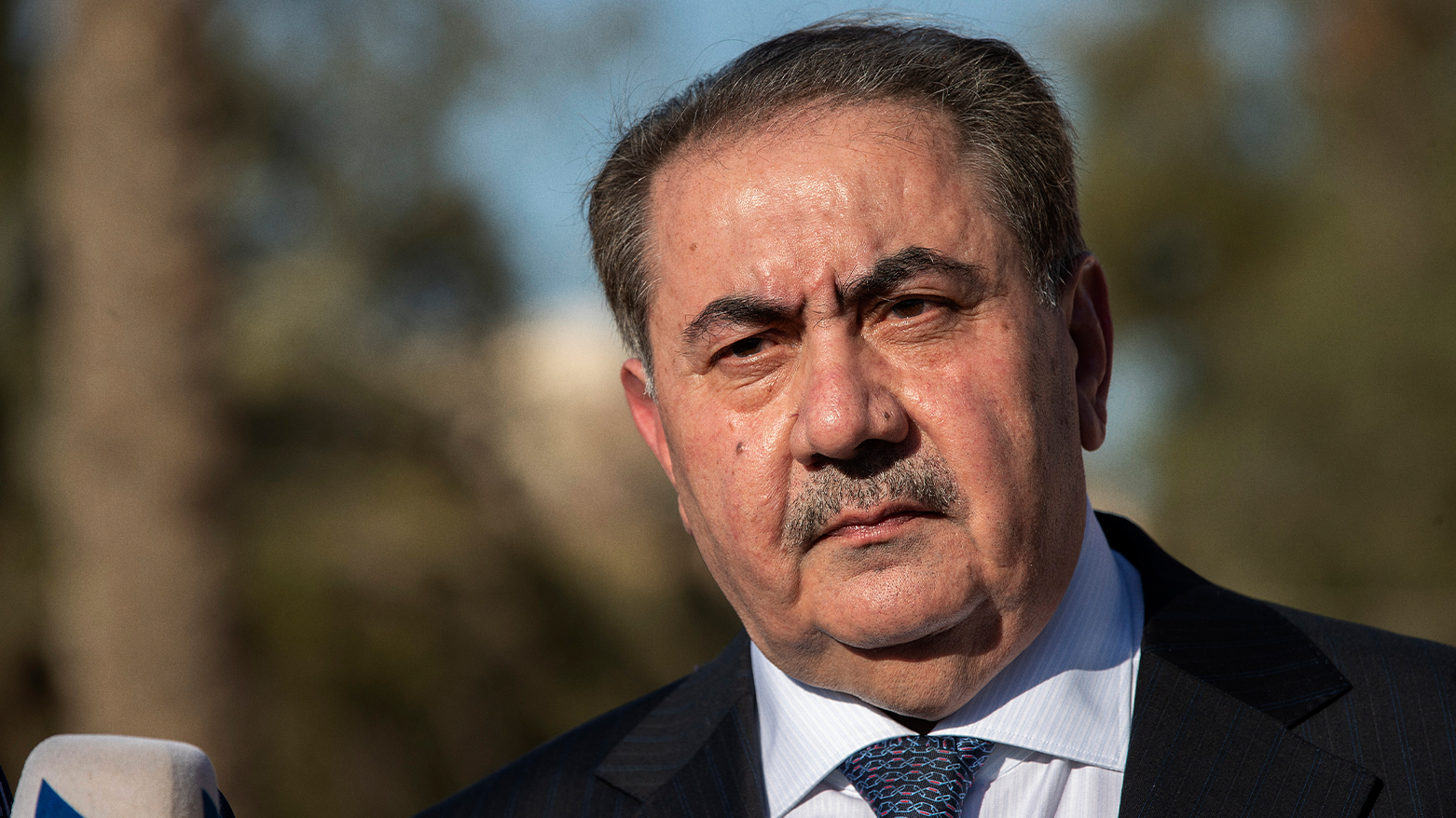Hoshyar Zebari Reflects on Iraq’s Diplomatic Path, Political Struggles, and Regional Challenges
"Some act as if they are foreign ministers, and we have experienced this chaos before,” said Hoshyar Zebari.

By Ahora Qadi
ERBIL (Kurdistan 24) – Kurdistan Democratic Party (KDP) Senior politburo Member and Former Iraqi Foreign Minister Hoshyar Zebari emphasized the importance of restoring Iraq’s standing in the Arab and Islamic world, reflecting on a decades-long career in service of the nation and urging unity in foreign policy amid mounting regional and domestic pressures.
Speaking on Saturday evening during an interview on Al Arabiya’s, Zebari highlighted his tenure across ten successive Iraqi governments, describing his efforts as pivotal in bringing Iraq back into the Arab fold following its 1991 isolation after Saddam Hussein’s invasion of Kuwait.
“Iraq’s upcoming hosting of the Arab Summit in May is a point of pride for all Iraqis,” Zebari said. “But the presence of conflicting authorities, especially within the Prime Minister’s Office, undermines the coherence of Iraq’s foreign policy. Some act as if they are foreign ministers, and we have experienced this chaos before.”
On controversial tweets and Iraqi politics
Addressing the often-discussed nature of his social media presence, Zebari dismissed claims that his posts are merely provocative. “I use my platform to shed light on the critical issues facing Iraq,” he stated, adding that his commentary aims to spark meaningful dialogue, not sensationalism.
He also delved into the file of the Popular Mobilization Forces (PMF), stressing that while it was initially founded through a religious fatwa by Grand Ayatollah Ali al-Sistani to counter ISIS, “some factions have exploited the situation to form their own armed wings.” He acknowledged the difficulties facing attempts to restructure the PMF, citing competing agendas within its components.
October protests and state fragmentation
Recalling the October 2019 protests that swept Iraq, Zebari condemned the excessive violence used against demonstrators and revealed that then-President Barham Salih had to leave Baghdad for Sulaimani after receiving threats. He noted that Adil Abdul Mahdi’s government was “paralyzed and unable to manage the crisis amid deep institutional divisions.”
Zebari also addressed his ties with the United States, expressing pride in maintaining good relations. He disclosed that Saddam Hussein’s location was revealed by individuals from within his own circle, in cooperation with U.S. intelligence. “I witnessed the handover of Saddam’s body to his family, and it was buried in Al-Awja,” he said.
On Iranian influence and regional dynamics
Commenting on Iran’s sway over Iraq, Zebari explained that the Trump administration viewed Iraq as an extension of the Iranian problem. “The U.S. Treasury possesses intelligence capabilities that surpass those of Iraq’s agencies,” he noted, denying any involvement in recent congressional efforts to introduce legislation aimed at countering Iranian influence in Iraq.
He recalled the 1998 “Iraq Liberation Act” and his role in supporting it alongside Ahmed Chalabi and Iyad Allawi.
Zebari further revealed that, according to Iraqi Foreign Ministry sources, the U.S. prevented Israel from launching three separate strikes against PMF targets to avoid escalating tensions.
Execution of Saddam Hussein and aftermath
When asked about his characterization of Saddam Hussein’s execution as “shameful,” despite the former dictator being responsible for the deaths of three of his brothers, Zebari clarified, “My objection was to the timing and manner of the execution—on the eve of Eid—which turned him into a martyr in the eyes of some, despite his countless crimes.”
Kurdistan, Israel, and the unresolved Kurdish dream
Zebari dismissed persistent accusations of normalization between the Kurdistan Region and Israel. “There are no Mossad bases in the Region,” he said. “We will not normalize unless the Iraqi government decides to do so.”
He reaffirmed that the dream of a Kurdish state remains alive. “Our decision to remain part of Iraq was a choice. The 2017 referendum was a response to the blockade we endured,” he stated.
Regarding the ongoing suspension of oil exports from the Kurdistan Region to Turkey, Zebari attributed the deadlock to Baghdad’s position. “Some American companies are pressuring for a resumption due to their interests,” he said, strongly rejecting allegations of oil smuggling: “My record is clean, and I speak the truth with courage.”
On Syria and the fate of civil governance
Turning to Syria, Zebari said that the Assad regime had previously facilitated the infiltration of suicide bombers into Iraq. “Things changed after 2014, especially with Iran’s support for the Syrian regime, which Iraq eventually aligned with.”
He warned that actors opposed to Syria’s transitional leadership would not remain idle, stressing that the battle over Syria’s future and the drafting of a new constitution would determine whether a civil state could emerge.
Backing elections and democratic continuity
In conclusion, Zebari reaffirmed his support for holding Iraq’s parliamentary elections as scheduled in November. “The vote is vital for reinforcing the democratic process,” he said, signaling hope for a more stable and representative political future.